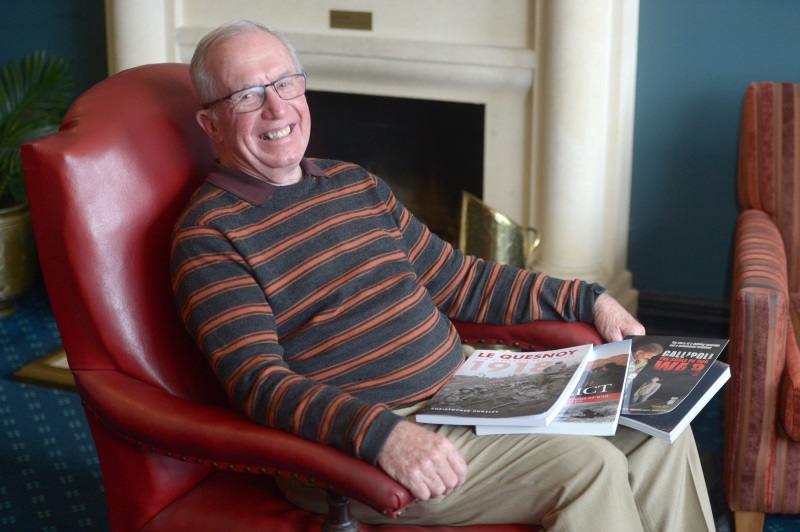
Military historian Chris Pugsley will deliver the keynote address at today’s Armistice Day service at the refurbished Caversham Memorial Archway Gate.
Dr Pugsley, a former infantry lieutenant-colonel in the New Zealand Army, specialises in 19th and 20th century New Zealand and Commonwealth history and has lectured at Sandhurst, the United Kingdom’s Royal Military Academy.
Armistice Day was an opportunity to reflect on the price of New Zealand’s freedom — it was not enough to simply acknowledge ‘‘our glorious dead’’, he said.
‘‘They hoped this was the war to end all wars and, of course, we know that that was far from the case.’’
Those who travelled overseas 106 years ago saw it as an opportunity to see the world and prove themselves, he said.
‘‘And then, suddenly, you’re in a situation where you suddenly realise that the war is tragedy and waste — it destroys.
‘‘Even if they come back and are outwardly untouched, it scars them for the rest of their lives.’’
That was the cost New Zealand had to pay for being a citizen of the world. Even in the modern era, New Zealand should not divorce itself from that citizenship, Dr Pugsley said.
‘‘We demand much without thinking.’’
Armistice Day had evolved to recognise the more recent service of New Zealanders who worked in peacekeeping, military training and medical roles across the world.
‘‘The wider picture makes you realise that New Zealanders do an awful lot for a very small country.
‘‘We’ve still got these high expectations of service for our military, even though it’s not the same.’’
However, through budget cuts and lower recruitment numbers to the defence force, New Zealand was ill-equipped to respond to significant global events, he said.
‘‘We’ve allowed our forces to run down to the point that even if we wanted to, we couldn’t send both [active] frigates to sea.’’
This was a shortage New Zealand needed to be aware of, given current global events.
‘‘You’re just conscious that, with the election in the United States ... we don’t know where one of the major players in the world is going to go,’’ he said.
‘‘In many ways, it’s a more dangerous world, isn’t it?’’












